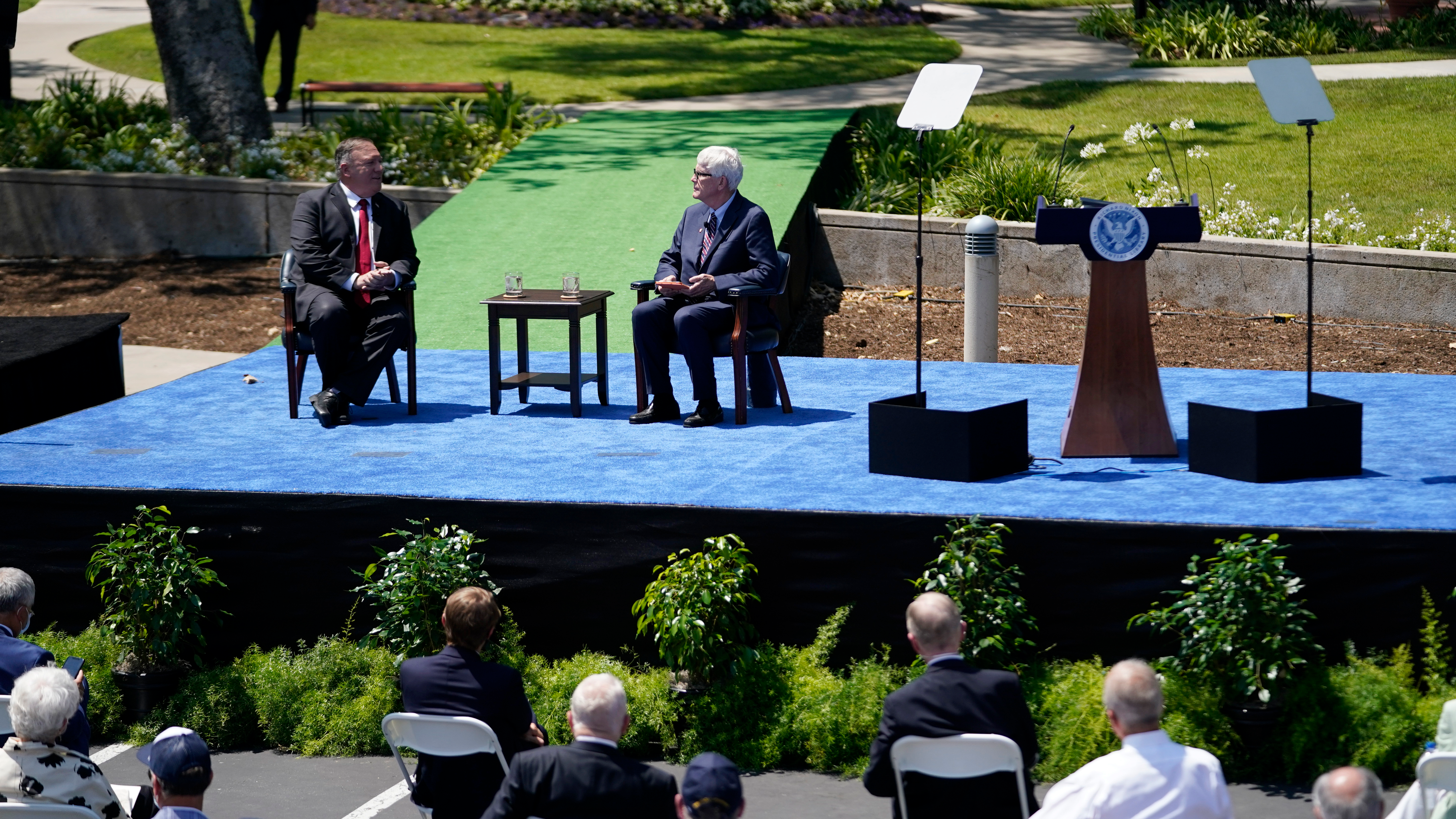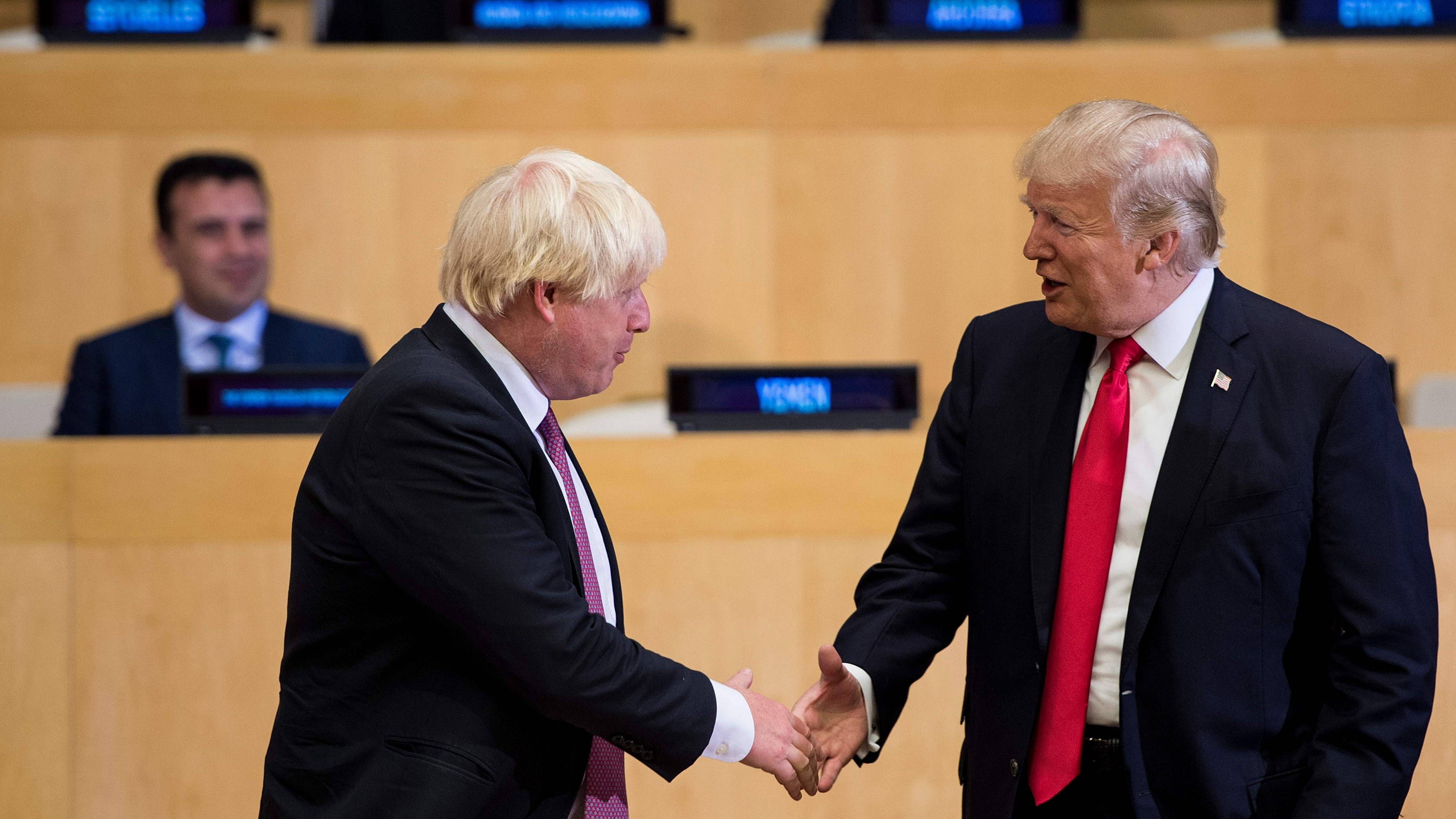
Editor's note: William Jones is the Washington bureau chief for the Executive Intelligence Review and a non-resident fellow of Chongyang Institute for Financial Studies, Renmin University of China. The article reflects the author's views and not necessarily those of CGTN.
A recent article published in the China Economic Diplomacy Watch pointed to the "Five Eyes" – the U.S., UK, Australia, Canada and New Zealand – as the key rallying group for Pompeo's call for a containment policy toward China. The article has indicated a crucial element in the danger the world is facing. The unifying factor in this grouping is, firstly, that the "Five Eyes" are all English-speaking countries, and secondly, that they all at one time or the other belonged to the British Empire.
While the impetus for this dangerous development is coming out of Pompeo's mouth, the problem really lies in this complex heritage of British imperial rule. Australia, Canada, and New Zealand are still part of the Commonwealth, and while the "empire" no longer has a structural existence, imperial thinking has never died in London, nor has racism connected with it.
The United States was something of an anomaly. The U.S. broke with the British Empire, and it wasn't very much into the "imperial" mindset. In the early days, those who didn't like the British (or the Spanish or Portuguese) empire, received U.S.' aid. In fact, if you look at U.S. history, the United States didn't really like empires at all, and our greatest strategic enemy two hundred years was Britain.
Even as late as Franklin Roosevelt, with his de facto war alliance with Churchill's Britain, he resisted the imperial thrust of Churchill's proposals. He invited China to be a part of the Big Four despite Churchill's objections. Roosevelt's initiative to create the United Nations and his planned post-war program was intended to make all empires, including the British one, obsolete.
With the death of Roosevelt, everything changed. And the entirety of post-war policy became subject to Churchill's "iron curtain" policy, which Pompeo is now trying to revive. All the colonies, to which Roosevelt promised decolonization, were transferred back to the colonial powers in the "fight against communism" campaign under the Truman administration.

U.S. President Donald Trump (R) shakes hands with British Prime Minister Boris Johnson (L) as they take part in a session on reforming the United Nations at U.N. Headquarters in New York, U.S., September 18, 2017. /Reuters
U.S. President Donald Trump (R) shakes hands with British Prime Minister Boris Johnson (L) as they take part in a session on reforming the United Nations at U.N. Headquarters in New York, U.S., September 18, 2017. /Reuters
From that time on, and even before, there has been a fight between the American Roosevelt tradition and the British Imperial tradition here in the United States across universities, military, think-tanks and the media. And the moniker of the imperial faction was the lie that the United States had a "special relationship" with UK, a relationship that Roosevelt never accepted as particularly "special" or outweighing other relationships that the U.S. had.
When Donald Trump won the presidency in 2016, he was committed to establishing close relations with Russia and China. But from the get-go, the forces of "empire" were totally dedicated to either throwing him out, or gaining control of his policy. "Russiagate" was key to this. And the fact that former MI6 operative Christopher Steele was instrumental in the alleged "evidence" of Russian collusion gives a pretty clear picture of the British role.
At the same time, however, there was also an "inside operation" on the President to surround him with advisers who could bring him back in line with the Anglo-American policy. General Mike Flynn, who was in agreement with the President on Russia, was quickly eliminated by "Russiagate," followed by a series of national security advisers more in line with the Anglo-American policy. Mike Pompeo, a Marco Rubio supporter in the 2016 presidential campaign and a protégé of the Kansas-based Koch Brothers, was brought in as CIA Director through the efforts of David Ware, a West Point classmate of Pompeo, who ran Trump's Pennsylvania campaign. Both Pence and Steve Bannon pushed the nomination of Pompeo who was something of an unknown for Trump.
A similar role has been played by the Henry Jackson Society in London, which has also been instrumental in turning around the pro-China policy of Boris Johnson.
And it is this Anglo-American faction that appears now dedicated to war in the short term. It is important to understand this. While the Anglo-American "mythos" tends to dominate many or our institutions, there is an equally patriotic faction in the United States that does not believe in empires. And while it is perhaps stronger outside the traditional foreign policy institutions which have been saturated with the mythology of "the special relationship," the general public and local and state officials are strongly influenced by this tradition. And for this reason, it is important for people to recognize this grass-roots aversion by Americans to all the reeks of British imperial thinking.
(If you want to contribute and have specific expertise, please contact us at opinions@cgtn.com.)